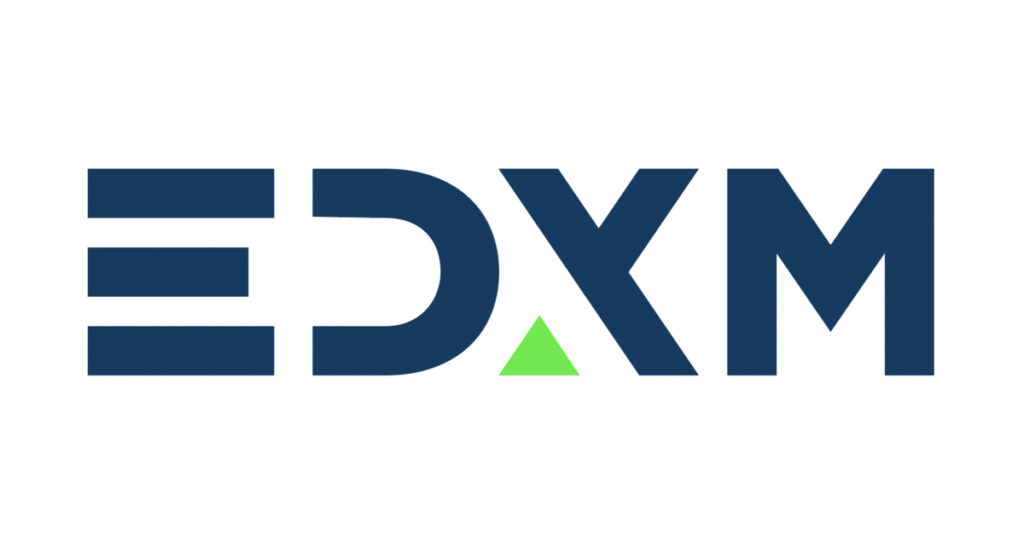Fidelity Investments, a prominent asset manager, has taken a step forward in its pursuit of a spot Bitcoin exchange-traded fund (ETF).
As disclosed in a filing by Cboe BZX Exchange with the United States Securities and Exchange Commission (SEC) on June 19, Fidelity has submitted an application for the ETF.
This move by Fidelity follows a series of similar applications made by other financial giants.
BlackRock, WisdomTree, Invesco, and Valkyrie had all submitted their respective spot Bitcoin ETF applications in the preceding days, with BlackRock initiating the trend on June 15.
According to Bloomberg, a total of seven spot Bitcoin ETF applications have been filed this year. Notably, Fidelity, WisdomTree, and Invesco are making a second attempt at securing approval for their spot BTC ETFs.
The applications submitted for the spot Bitcoin ETFs emphasize the significance of the regulated CME Bitcoin Futures market as it pertains to the spot Bitcoin market.
Fidelity’s application, much like others, argued extensively on this point and supported its claim with thorough research.
In its 193-page application, Fidelity stated, “The lack of a Spot Bitcoin ETP exposes U.S. investor assets to significant risk because investors that would otherwise seek crypto asset exposure through a Spot Bitcoin ETP are forced to find alternative exposure through generally riskier means.”
It also highlighted past instances, such as the cases of FTX, Celsius, BlockFi, and Voyager Digital, where investors had resorted to riskier alternatives due to the absence of a spot Bitcoin ETP.
Fidelity Digital Assets Services, a regulated custodian licensed by the New York Department of Financial Services, would be entrusted with the custody of the trust’s Bitcoin.
Furthermore, Cboe BZX Exchange announced its intent to establish a surveillance-sharing agreement with a United States-based cryptocurrency exchange.
It’s worth noting that the SEC is yet to approve any of the applications for a spot Bitcoin ETF. Fidelity’s filing, using the 19b-4 form, revealed that the firm is reviving its Wise Origin Bitcoin Trust product, which was initially submitted for approval in March 2021.
Unfortunately, the previous application was rejected despite two deliberation extensions.
With approximately $11 trillion in assets under administration, Fidelity Investments holds significant clout in the financial industry.
If approved, its spot Bitcoin ETF would provide investors with a regulated and more accessible avenue for exposure to Bitcoin, reducing the need for riskier alternatives.
However, the ultimate decision rests with the SEC, and the market awaits their verdict on these applications.
Other Stories:
Bankrupt Crypto Exchange FTX Takes Steps Towards Relaunching as a New Entity
SEC Commissioner Pushing For ‘Reserved’ Approach to Cryptocurrency Regulation
EDX Cryptocurrency Exchange Prepares to Switch Custody Providers
The price of Bitcoin (BTC) remained within a narrow trading range between $30,000 and $31,000, showing no significant upward or downward movement, according to data from Cointelegraph Markets Pro and TradingView.
However, market participants started to anticipate a potential breakthrough above resistance levels.
Several traders and analysts expressed optimism about Bitcoin’s future performance.
A popular trader known as Jelle tweeted that Bitcoin’s current price action resembled its breakout in late 2020, suggesting a potential upward trend.
Another prominent analyst, Rekt Capital, pointed out positive signs on monthly timeframes, indicating that Bitcoin was positioning itself for a monthly close above a resistance level that had previously rejected its price.
Michaël van de Poppe, the founder and CEO of trading firm Eight, echoed the positive sentiment, stating that both Bitcoin and altcoins were showing promising movements, suggesting the possibility of another upward leg in the markets.
On the macroeconomic front, market participants were eagerly awaiting the release of major data, including comments on economic policy by Jerome Powell, the chair of the United States Federal Reserve.
The volatility catalyst for risk assets was expected to be the Personal Consumption Expenditures (PCE) figures, which served as Powell’s preferred inflation measurement tool.
Additionally, the options open interest expiry on June 30 attracted attention, as it amounted to a substantial $4.7 billion.
Traders speculated on the potential impact of this expiration on the crypto market, with some expecting spot buying from dealers to hedge their books if the options were rolled into more calls.
Tedtalksmacro, a financial commentator, suggested that there might be limited movement in the crypto market until the expiry of the options open interest.
Overall, while Bitcoin remained range-bound in the short term, market participants showed growing optimism about a potential breakout above resistance levels.
Traders and analysts highlighted similarities to past bullish trends, and the release of macroeconomic data, including PCE figures and the options expiry, was expected to bring potential volatility to the market.
Other Stories:
SEC Commissioner Pushing For ‘Reserved’ Approach to Cryptocurrency Regulation
EDX Cryptocurrency Exchange Prepares to Switch Custody Providers
Bankrupt Crypto Exchange FTX Takes Steps Towards Relaunching as a New Entity
EDX, a recently launched cryptocurrency exchange, is reportedly preparing to switch its custody provider from Paxos Trust to Anchorage Digital.
The exchange, which received support from prominent traditional finance entities like Citadel Securities, Fidelity Digital Assets, and Charles Schwab, operates on a noncustodial business model aimed at eliminating conflicts of interest.
EDX currently facilitates trading in two cryptocurrencies, Bitcoin and Bitcoin Cash.
Notably, Bitcoin Cash has experienced significant growth since the exchange’s inception, with a 70.43% increase over the past week and a remarkable 101.36% surge in the last month.
Following the exchange’s announcement of its partnership with Paxos in October, the United States Securities and Exchange Commission proposed stricter custody regulations for crypto firms.
Paxos, holding a BitLicense from the New York Department of Financial Services, faced an investigation earlier this year for undisclosed reasons.
Additionally, Paxos obtained preliminary conditional approval for a U.S. bank charter from the United States Comptroller of the Currency (OCC) in 2021, but that approval reportedly lapsed by the end of March.
Anchorage Digital, on the other hand, became the first crypto firm to receive a national trust bank charter from the OCC in January 2021.
However, it faced regulatory issues a year later due to Anti-Money Laundering deficiencies and subsequently agreed to a consent order.
Shortly thereafter, Anchorage Digital formed a custody network with prominent crypto exchanges including Binance.US, CoinList, Blockchain.com, Strix Leviathan, and Wintermute.
EDX has plans to introduce EDX Clearing, a clearinghouse designed to settle trades executed on the EDX Markets platform, later this year.
While EDX declined to comment on the change of its custody provider, Anchorage Digital did not respond to requests for comments regarding the matter.
The decision to switch custody providers signifies EDX’s commitment to establishing a secure and compliant infrastructure for its users.
With the support of reputable financial heavyweights and the intention to introduce a clearinghouse, EDX aims to enhance its trading platform and ensure a seamless experience for cryptocurrency traders.
Other Stories:
Bspin Review – Here’s Why You Shouldn’t Gamble With This Bitcoin Casino
Federal Judge Denies Binance’s Motion in SEC Lawsuit
HSBC Launches Cryptocurrency Services, Offering Bitcoin ETFs to Customers
The lower house of the North Carolina General Assembly has approved a bill that paves the way for the state to study the feasibility and advantages of holding Bitcoin.
The bill, which passed the North Carolina House of Representatives on June 28, would allocate $50,000 for a study to explore the potential acquisition, secure storage, insurance, and liquidation of both gold bullion and virtual currencies, including Bitcoin.
The study aims to assess the impact of incorporating gold and cryptocurrency holdings into North Carolina’s financial assets.
It will investigate whether such holdings can act as a hedge against inflation and systemic credit risks.
Additionally, the study will examine whether including gold and crypto assets in the state’s portfolio could reduce volatility and increase overall returns.
One of the bill’s proposals involves the creation of a state-administered depository to house the digital asset holdings. Under this arrangement, North Carolina would act as the custodian of its crypto assets.
The study will also consider the costs and benefits associated with using a privately managed depository or utilizing the depository of another state.
The bill received support from the majority of the 120-member House, with 73 representatives voting in favor, 40 against, and seven absentees.
However, before the bill can become law or be vetoed, it must also pass through the Senate and receive final approval.
In a related development, on May 3, the North Carolina House unanimously passed a bill prohibiting payments to the state using a central bank digital currency (CBDC).
The legislation also forbids the United States Federal Reserve from conducting any future pilot CBDC tests in North Carolina.
Prior to that, on May 2, the Buncombe County Board of Commissioners in North Carolina passed a one-year moratorium on cryptocurrency mining.
This temporary ban reflects a growing concern over the environmental impact of mining operations.
As the bill progresses through the legislative process, North Carolina is demonstrating an increased interest in exploring the potential benefits and risks associated with cryptocurrencies, digital assets, and their role within the state’s financial infrastructure.
Other Stories:
Bitcoin (BTC) Miners Experience Record Surge in Revenue Sent to Exchanges
SYS Labs Announces Launch of Rollux EVM Layer-2 Solution
Sale of FTX’s $500 Million Stake In AI Startup Paused, Hindering Efforts To Fill $2 Billion Gap
Bitcoin miners are experiencing a significant surge in revenue sent to exchanges, according to a tweet by Glassnode, an on-chain analytics platform.
The platform reported that miners had sent a record-breaking $128 million to exchanges in the past week, which amounts to a staggering 315% of their daily revenue.
While there have been previous spikes in miner revenue during the 2021 bull run, this recent surge surpasses them all by a considerable margin.
Typically, miners send their Bitcoin profits to exchanges to cover expenses and secure their profits. Given that Bitcoin reached its highest price of the year, touching $31,185 on June 24, this past week presented an opportune time for miners to cash out.
CryptoQuant co-founder and CEO Ki Young Ju echoed this sentiment, noting that the current price-to-earnings ratio was attractive for miners to sell.
However, despite the increased activity from miners, Bitcoin’s price remains relatively stable above the $30,000 threshold.
The $31,000 price level poses a significant resistance for Bitcoin, as it failed to break it both in mid-April and late June.
If bulls are unable to make progress and miners continue liquidating their holdings, the possibility of future losses looms.
Although Bitcoin’s price has surged by over 88% year-to-date, miners still face numerous challenges.
Profitability has dropped by more than 30% since July of the previous year and has plummeted over 80% since the peak of the 2021 bull market.
Moreover, record hash rates of 377 EH/s and peak difficulty levels further compound the obstacles faced by Bitcoin miners.
With rising hash rates, difficulty levels, and energy costs, mining profitability has been negatively impacted.
Consequently, miners may reluctantly need to sell their hard-earned Bitcoin to cover expenses, a situation that is far from ideal.
Other Stories:
SYS Labs Announces Launch of Rollux EVM Layer-2 Solution
HSBC Launches Cryptocurrency Services, Offering Bitcoin ETFs to Customers
Bspin Review – Here’s Why You Shouldn’t Gamble With This Bitcoin Casino
According to Michael Shaulov, CEO and co-founder of Fireblocks, an approved BlackRock spot Bitcoin exchange-traded fund (ETF) will bring in new institutional money to Bitcoin, but it will be the retail investors who will ultimately drive significant price surges.
Shaulov made these observations during the Australian Blockchain Week, highlighting that institutional involvement in crypto may not necessarily lead to skyrocketing prices.
Shaulov pointed out that even during the mid-2020 period when there were massive inflows of institutional money, the prices didn’t see significant appreciation until retail investors fervently embraced crypto assets later in the year.
The institutions were acquiring Bitcoin slowly and utilizing algorithms that wouldn’t drive up the market.
On the other hand, retail investors, who participate in a less sophisticated manner, were responsible for dramatic price movements, with 50% increases attributed to them.
However, Shaulov acknowledged that the finite supply of Bitcoin meant that any large-scale accumulation of the cryptocurrency would ultimately impact its price.
He believed it would be easier for institutions currently not participating in the market to add Bitcoin to their allocation due to its unique properties.
Shaulov also discussed the various narratives surrounding Bitcoin among institutional investors.
He mentioned that the narrative surrounding Bitcoin is still unfolding for these institutions. Is it a hedge against inflation? Is it a public reserve currency? Is it a hedge against government financial misdealings? Shaulov personally views Bitcoin as the “ultimate insurance asset.”
He emphasized that Bitcoin possesses properties that make it valuable in times of crisis.
It is disconnected from governments, digitally native, and easily transferable.
Shaulov concluded by stating that the specific value of Bitcoin at any given point, whether it’s $15,000, $20,000, or $60,000, is not as crucial as having enough of it to survive challenging periods.
In his opinion, Bitcoin serves as a reliable asset in times of uncertainty and can provide a safeguard against adverse economic conditions.
Other Stories:
Bspin Review – Here’s Why You Shouldn’t Gamble With This Bitcoin Casino
HSBC Launches Cryptocurrency Services, Offering Bitcoin ETFs to Customers
Japan Grants Tax Exemption on Unrealized Crypto Gains for Token Issuers
Bspin Casino is an online gaming platform that caters to users worldwide. Known for its expansive games roster and security features, it is emerging as one of the premier destinations for online gambling enthusiasts.
Bspin Casino boasts an impressive range of gaming options that include table games, slots, and live casino games, delivered by some of the industry’s best software developers.
Bitcoin-Only Casino
One unique aspect that separates Bspin from its competitors is its commitment to Bitcoin. The casino operates on a Bitcoin-only basis, which not only makes it distinct but also makes it an appealing option for players who prioritize privacy and security. The blockchain-based transactions facilitated by Bitcoin ensure that player activities remain anonymous, thus providing a high level of confidentiality. Additionally, Bitcoin transactions are instant, eliminating the waiting times typically associated with conventional casino payment methods.
Bspin Casino takes pride in its extensive game library that offers a variety of games to cater to the tastes of all players. The games are provided by renowned developers in the industry, including Pragmatic Play, GameArt, Habanero, and Evolution Gaming. Slots are by far the most populated category, featuring a diversity of themes, graphics, and gameplay mechanics.
You’ll find classic 3-reel slots for those who like simplicity and nostalgia, and the latest 5-reel video slots for those who prefer cutting-edge graphics and immersive gameplay. Progressive jackpot slots are also available for players chasing life-changing prizes.
Table game enthusiasts are also well catered for, with a wide array of classics such as Blackjack, Baccarat, Roulette, and Poker available in multiple variants. These games are powered by sophisticated RNG software, ensuring fair and unpredictable outcomes. The live dealer section adds an extra layer of immersion, allowing players to engage with professional croupiers and experience the thrill of a land-based casino from the comfort of their home.
Mobile App
Perhaps one of the most commendable aspects of Bspin Casino is its mobile-friendly design. In this day and age, the convenience of being able to play on the go is a significant factor for many online gamblers.
Bspin Casino provides a seamless mobile experience, making all games accessible via mobile devices without compromising on functionality or graphics quality. The site is intuitively designed, ensuring that players can navigate easily and find their favorite games within seconds.
Security is a top priority at Bspin Casino. The platform uses advanced SSL encryption to protect player data, ensuring that personal and financial information remains secure. The casino also adheres to strict privacy policies, reinforcing its commitment to player confidentiality. The use of Bitcoin further enhances security, as it ensures that transactions are both encrypted and untraceable.
Bspin Casino also excels in customer service, with a dedicated support team available 24/7 to assist players with any queries or issues. The support team can be contacted through various channels, including live chat and email, ensuring that players are never left in the dark. The casino also has a comprehensive FAQ section where players can find answers to common questions.
When it comes to bonuses and promotions, Bspin doesn’t disappoint. New players are welcomed with a generous bonus package, while regular players are rewarded with various ongoing promotions. The casino also features a loyalty program, where players can earn points for every bet they place and redeem these points for bonuses or cash rewards.
Bspin Casino is an impressive online gambling platform that delivers on multiple fronts. Its Bitcoin-only operation might be a sticking point for some, but for those who value privacy and security, it’s a distinct advantage. With an expansive game library, user-friendly design, robust security measures, and excellent customer service, Bspin Casino is a top choice for both new and experienced players. Whether you’re a fan of slots, table games, or live dealer games, Bspin Casino has something to offer for everyone.
Should You Gamble With Bspin Casino?
Several users have reported issues withdrawing their winnings or part of their initial deposits with Bspin Casino, indicating that this crypto casino is a scam. Furthermore, Bspin has been accused of running rigged games, with exceptionally low win rates and payouts.
Therefore, it is not advisable to gamble with Bspin Casino.
Other Stories:
Federal Judge Denies Binance’s Motion in SEC Lawsuit
Bitcoin Holds Steady Around $30,500, Fueling Hopes for Institutional Demand
HSBC Launches Cryptocurrency Services, Offering Bitcoin ETFs to Customers
HSBC, the largest bank in Hong Kong, has reportedly launched its first cryptocurrency services, marking a significant step in embracing the digital asset space.
Journalist Colin Wu revealed in a tweet on June 26 that HSBC customers can now buy and sell Bitcoin-based exchange-traded funds (ETFs).
The cryptocurrency ETFs offered by HSBC are listed on the Stock Exchange of Hong Kong, including CSOP Bitcoin Futures ETF, CSOP Ethereum Futures ETF, and Samsung Bitcoin Futures Active ETF.
This move by HSBC aims to expand the exposure of local users to cryptocurrencies in Hong Kong. With a reported 1.7 million active mobile customers as of March 2022, HSBC Hong Kong is a prominent player in the region’s retail banking sector.
It is worth noting that approximately 95% of all retail transactions conducted by HSBC in Hong Kong are processed online, highlighting the increasing preference for digital services.
HSBC has also reportedly introduced the Virtual Asset Investor Education Center in conjunction with its cryptocurrency services.
The purpose of this initiative is to protect investors from risks associated with cryptocurrencies. Investors are required to read and confirm educational materials and risk disclosures before engaging in any cryptocurrency-related investments.
The Virtual Asset Investor Education Center is accessible through various HSBC platforms, including the HSBC HK Easy Invest app, HSB CHK Mobile Banking app, and online banking.
Notably, HSBC has yet to respond to inquiries from Cointelegraph regarding these developments. Further updates will be provided as additional information becomes available.
This recent development aligns with reports from mid-June suggesting that the Hong Kong Monetary Authority has exerted pressure on major banks to accept crypto exchanges as clients.
The central bank and regulator specifically questioned institutions like HSBC and Standard Chartered regarding their reluctance to serve cryptocurrency exchanges.
HSBC’s introduction of cryptocurrency services may be seen as a response to these regulatory inquiries and a strategic move to stay ahead in the evolving financial landscape.
In summary, HSBC’s entry into the local cryptocurrency market in Hong Kong through the introduction of Bitcoin ETFs signifies a notable step toward embracing digital assets.
The accompanying Virtual Asset Investor Education Center aims to ensure investor protection, reflecting HSBC’s commitment to responsible engagement with cryptocurrencies.
These developments come amidst increasing regulatory scrutiny and highlight the growing acceptance and integration of cryptocurrencies into traditional financial institutions.
Other Stories:
FATF Urges Global Adoption of Crypto ‘Travel Rule’ Amid Rising Financial Crime Risks
Hong Kong SFC Chief Emphasizes Importance of Crypto Trading
Bitcoin ETF Fever Returns: ProShares’ BITO Sees Largest Inflow in a Year
Token issuers in Japan will no longer be required to pay corporate taxes on unrealized cryptocurrency gains, thanks to a recent law revision by the National Tax Agency.
The tax exemption, which was approved by the Japanese government nearly six months ago, eliminates the obligation for crypto firms to pay taxes on paper gains from tokens they issued and held.
The discussion surrounding new crypto tax rules in Japan began in August of the previous year as part of broader tax reforms for 2023.
However, the final approval from the tax authority was only granted this week. Under the revised rules, Japanese companies issuing tokens are exempt from the standard 30% corporate tax rate on their holdings.
Prior to this law, even unrealized gains were subject to taxation.
The ruling Liberal Democratic Party aims to simplify business operations related to token issuance with the implementation of these tax exemptions.
This move is expected to make it easier for various companies to engage in token-related activities.
The cryptocurrency industry in Japan has experienced significant transformations recently.
As of June 1, the country has been enforcing stricter Anti-Money Laundering (AML) measures to align its legal framework with global crypto regulations.
The AML legislation was revised in December after the Financial Action Task Force deemed it insufficient.
In addition, the government passed legislation in June of the previous year prohibiting non-banking institutions from issuing stablecoins.
The new bill, which came into effect a few weeks ago, limits stablecoin issuance to licensed banks, registered money transfer agents, and trust companies.
Japan has been at the forefront of crypto legalization, considering it as a form of private asset, and its regulatory framework for cryptocurrencies is one of the strictest globally.
Following major hacks on exchanges like Mt. Gox and Coincheck, Japan’s financial regulator tightened rules for crypto exchanges.
These local regulations are believed to have facilitated the prompt return of assets to FTX users in Japan after the exchange’s global collapse, in contrast to users in other countries who did not have a clear refund deadline.
Overall, Japan continues to make significant strides in shaping its crypto industry through regulatory measures, ensuring both security and compliance in the rapidly evolving digital asset landscape.
Other Stories:
$PEPE Cryptocurrency Skyrockets Nearly 70% as Crypto Whales Drive Unprecedented Surge
Creditor Pledges Tokenized FTX Claim as Collateral for Groundbreaking DeFi Loan
The price of Bitcoin hovered around $30,500 as the Wall Street market opened this week, with bullish investors finding newfound support.
Data from Cointelegraph Markets Pro and TradingView indicated that the price of BTC remained stable at $30,000 during the weekly close.
At the start of the week, the largest cryptocurrency showed stability as the U.S. markets began trading, and there were hopes for a repeat of the previous week’s performance.
The United States played a significant role in driving buyer interest, particularly after several institutional product applications based on the Bitcoin spot price were announced.
According to popular trader Daan Crypto Trades, most of the action and buying pressure occurred during the U.S. stock market open hours.
This sentiment was echoed by fellow trader Skew, who emphasized the importance of the June 26 U.S. trading session.
On-chain analytics firm Glassnode supported this observation, suggesting that the increased interest in Bitcoin could be part of a longer-term trend driven by the filings for U.S.-based exchange-traded funds (ETFs). Its weekly newsletter,
“The Week On-Chain,” highlighted the revival of U.S.-led demand after a period of weaker relative demand in 2023, with Asian exchanges experiencing the strongest accumulation year to date.
Regarding BTC’s price performance, trading suite DecenTrader identified a significant resistance level above the current price.
This level was represented by the two-year moving average (MA) at slightly above $32,800. Historical data indicated that the area below the two-year MA had provided a favorable opportunity for accumulation before the subsequent halving cycle.
Shorter timeframes also showed a lack of interest in shorting BTC at current levels, which increased expectations for a resumption of the upward trend.
Traders and analysts remained optimistic about Bitcoin’s overall strength, with potential retracements expected to be shallow.
Rekt Capital, a trader and analyst, stated that when a BTC correction ends convincingly, it is highly unlikely that another deep correction would follow immediately.
Any downside movements were more likely to be temporary dips within a new uptrend continuation.
In conclusion, Bitcoin experienced stable trading around $30,500 as the U.S. markets opened on June 26. The U.S. market played a significant role in driving buyer interest, possibly influenced by the recent filings for Bitcoin ETFs.
Analysts and traders expressed optimism about Bitcoin’s price performance, with resistance levels identified and expectations for a shallow retracement before a continuation of the upward trend.
Other Stories:











